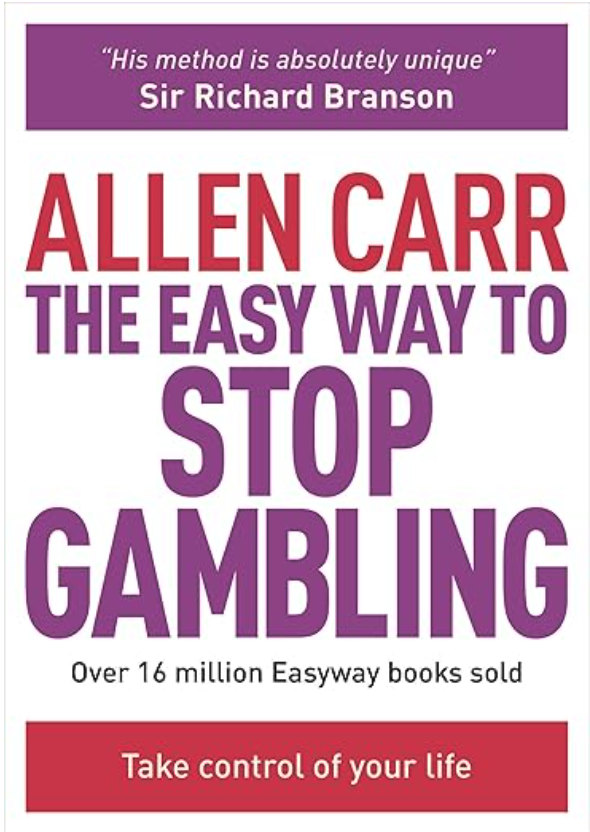What is gambling addiction? Simply put, it’s a behavioral disorder where the urge to gamble becomes uncontrollable—despite the harm it causes. Gambling addiction—also known as gambling disorder—is a compulsive need to continue betting, even when it negatively impacts your finances, relationships, and mental health.
Understanding “what is gambling addiction” goes beyond seeing it as a bad habit or poor decision-making. It’s a recognized psychological condition that deeply affects your life and the lives of those around you.
Recognizing the Signs
You might be wondering how to tell the difference between casual gambling and a serious problem. Clinically, someone may be struggling with gambling addiction if they:
- Constantly think about gambling
- Need to increase bets to feel excitement
- Struggle to stop despite repeated attempts
- Lie to hide gambling activities
- Borrow or steal money to gamble
- Neglect responsibilities at work or home
- Feel anxious, irritable, or restless when not gambling
These behaviors aren’t just risky—they are signs of a deeper issue. If you’re trying to figure out what is gambling addiction in a clinical sense, these symptoms align with how professionals diagnose the condition.
Why Gambling Addiction Happens
Gambling addiction isn’t about weakness or lack of willpower. It’s a complex condition rooted in brain chemistry, emotional coping, and environmental triggers. Gambling activates the brain’s reward system, releasing dopamine that reinforces the behavior. Over time, it becomes a learned escape mechanism.
Some individuals are more vulnerable to developing what is considered gambling addiction due to genetic factors or co-occurring mental health conditions like anxiety, depression, PTSD, or ADHD. The constant exposure to online betting platforms and gambling advertisements also makes it harder to resist urges.
Featured Book Review
 The Easy Way to Stop Gambling
The Easy Way to Stop Gambling
by Allen Carr
A highly accessible and straightforward guide that challenges the core beliefs behind gambling behavior. Allen Carr’s method focuses on dismantling the mental traps and illusions that keep people stuck, offering a clear pathway to stop gambling without relying on willpower alone. This book is designed to help readers shift how they *think* about gambling, making the process of quitting feel less like a struggle and more like a natural choice.
If you’re looking to deepen your recovery, books can guide you through reflection, structure, and healing. Visit our Books for Recovery page for carefully chosen titles to support your journey.
The Emotional and Financial Toll of Gambling Addiction
Fully understanding what gambling addiction is means acknowledging its emotional and financial consequences. Emotionally, individuals may experience shame, guilt, hopelessness, and isolation. In severe cases, they may struggle with suicidal thoughts or develop co-occurring mental health issues.
Relationships often suffer. Loved ones may feel betrayed, exhausted, or overwhelmed by the secrecy and financial stress the addiction causes. Trust is broken, and emotional pain becomes part of everyday life.
Financially, the toll is often catastrophic. A person struggling with gambling addiction may:
- Max out credit cards or take out high-interest loans
- Fall behind on rent, mortgage, or utility bills
- Sell personal or family belongings to fund gambling
- Drain savings accounts or retirement funds
- Face legal issues or bankruptcy due to mounting debts
When people ask, “What is gambling addiction doing to my life?”—these financial and emotional struggles are the most visible answers. The damage is real, but so is the possibility of recovery.
A Path Toward Recovery
The good news: recovery from gambling addiction is not only possible—it’s life-changing. It begins with acknowledging the problem and reaching out for support.
Many individuals find hope through therapy, especially Cognitive Behavioral Therapy (CBT), which helps reframe thoughts and behaviors linked to gambling. Family therapy and couples counseling can also help heal damaged relationships and rebuild trust.
Peer support groups like Gamblers Anonymous offer accountability and shared experience, while financial counselors can assist with debt management, budgeting, and rebuilding financial health.
If you’ve ever asked yourself, “What is gambling addiction and how do I break free from it?” — this journey begins with information, compassion, and the willingness to take the next step. You’re not alone, and healing is possible.
Tools That Help
Recovery isn’t one-size-fits-all. Please know that some links on High Stakes Healing are affiliate links. This means we may earn a commission if you make a purchase, at no added cost to you. These small contributions allow us to provide articles, tools, and support to those in recovery, while recommending only the resources we genuinely value. Many people find healing in tools like:
Professional Support Anytime
Recovery doesn’t have to be faced alone. With Online-Therapy.com, you can connect with licensed therapists from the comfort of home and work through gambling addiction at your own pace.
Frequently Asked Questions: What is Gambling Addiction
What is gambling addiction exactly?
Gambling addiction—also known as compulsive gambling or gambling disorder—is a behavioral addiction where a person is unable to control their urge to gamble, even when it leads to serious consequences in their personal, financial, or emotional life.
What are the main signs of gambling addiction?
Common signs include preoccupation with gambling, chasing losses, lying about gambling habits, neglecting responsibilities, using gambling to escape emotions, and an inability to stop despite negative consequences.
What causes someone to develop a gambling addiction?
Gambling addiction is influenced by a mix of biological, psychological, and environmental factors. These may include underlying mental health conditions (like anxiety or depression), family history, early exposure to gambling, impulsive personality traits, or life stressors and trauma.
Can gambling addiction affect people who only gamble online?
Yes. Online gambling can be particularly addictive due to its 24/7 access, speed, and anonymity. Many people develop problematic gambling behaviors through online platforms, including sports betting, casinos, and lottery apps.
Is gambling addiction treatable without rehab?
Yes. Many people recover without entering inpatient rehab by using a combination of cognitive behavioral therapy (CBT), support groups, online resources, and self-help strategies. However, more intensive treatment may be necessary in severe cases.
Where can I get help for gambling addiction?
You can start by speaking with a mental health professional, joining a support group like Gamblers Anonymous, exploring gambling recovery resources for digital tools and apps for recovery, or contacting a gambling addiction helpline in your area. Early support makes a big difference.
Take the First Step
You don’t need to fix everything today. What matters is starting—right where you are.
Subscribe to our newsletter for weekly insights when the road feels difficult.
If you’re ready to start your own recovery, follow our step-by-step Gambling Recovery Roadmap.
You’re not beyond help. Understanding what is gambling addiction, is an important first step. You’re already on your way. We are your safe place to begin gambling recovery.





